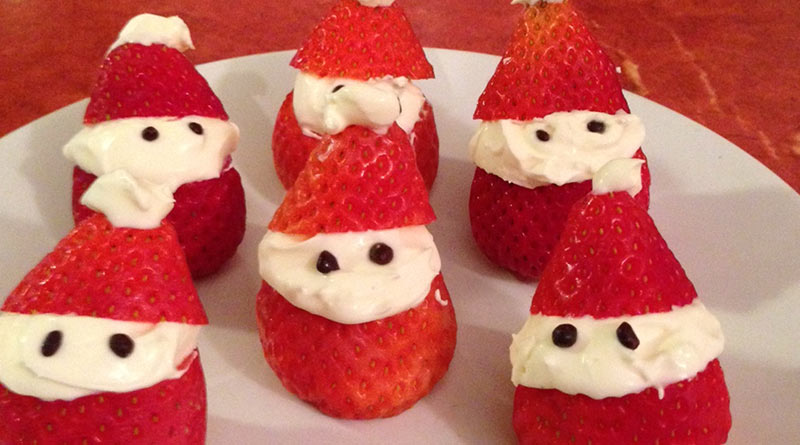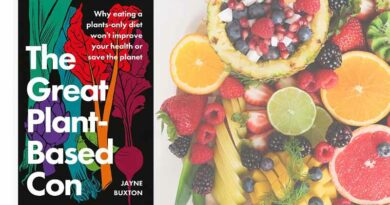Top tips for festive eating

Introduction
Every Monday we send out a newsletter that looks at a particular aspect of diet and health in the news. This will be the last note before Christmas, so I thought it might be timely and less brain-taxing to share some tips for eating well over the festive season.
We’d love to have you as a subscriber to either our popular Diet and Health Club, with its friendly and supportive forum, packed with diet and health tips, or my straight talking, no-nonsense newsletter.
If you’d like to try our Diet and Health Club, we’re running a special offer running up to year end, which includes enrolment in our 14-day ‘Back to Basics’ Plan that kicks off on 2nd January 2023.
Now, onto today’s newsletter…
Eighteen years ago, my first book was published: “Why do you overeat? When all you want is to be slim.” The month it came out, February 2004, there was a programme about obesity on HTV in Wales. I was one of a dozen people invited along to the studio to take part in a discussion. Only one of the panel members was from outside Wales. A woman had been chauffeured to the studio from southeast England. The programme producers wanted to have someone who was happy being obese to provide that perspective during the debate. When it came to her turn to talk, it turned out that she wasn’t happy with her size, but she had come to accept it after so many failed diets. If she could have taken a magic pill to be slim, she would have done, but she had made peace with her weight having decided it was pointless continuing to try to change it.
I first became interested in the field of diet and health because I was fascinated with obesity. It failed all logical wiring that I have. I have yet to meet someone who is genuinely happy being overweight/obese – who would never take a magic pill to be slim if there were one – and yet two thirds of people in the ‘developed world’ match this description. If it really were as simple as “eat less/do more”, we would have done it long ago.
My first job was as a management consultant, which was ridiculous in retrospect, as you’re straight out of university and you know nothing about business. As it happened, management consultant turned out to be a glorified job description for researcher and gofer. My first role was in Boston, US, and the working hours were so long that I didn’t get time to meet anyone, and colleagues just wanted to get back to their family whenever they could. I spent any free time I had in combo book-coffee shops. I could browse books over a cappuccino, which was a lovely way to get out and about. It also turned out to be life changing, as I started to read books about gut flora, food intolerance and hypoglycaemia (low blood glucose), which were not available in the UK at that time.
I was curious as to why I personally was drawn to junk food, and I was curious as to why others were too. Why did I crave muffins, but not meat? Candy, but not carrots? Many of the discoveries that I now share in presentations were made long before I wrote my first book. When I tried to understand what food actually is, I realised that nature provided carb/proteins (plant foods – fruit, vegetables, grains, legumes) and fat/proteins (animal foods – meat, fish, eggs and dairy). I realised that only nuts and seeds (and avocado) have carbohydrate, fat and protein in good measure. Cashews, for example, are 33% carb and 44% fat, with 18% protein and 5% water making up the remainder (Ref 1).
I then realised that all irresistible fake food had the unnatural combination of fat and carbohydrate – the combination that nature rarely provides. And when it does – I don’t know about you – but I find nuts ‘more-ish’ in a way that I don’t meat or carrots. Candy, cakes, cookies, ice cream, chips, crisps – they all have unnatural amounts of both fat and carbohydrate, and we are able to overeat them. I bet that you could eat more bread with butter, than bread or butter alone. More cheese with crackers, than cheese or crackers alone.
This led to one of the principles of Phase 2 in what became known (following that first book) as The Harcombe Diet®. Don’t eat fat and carbs at the same meal – have meat/fish/eggs/dairy with veg/salads or fruit/baked potatoes/brown rice/beans with veg/salads, but don’t have steak and chips or pasta with a creamy sauce. You’ll find it too easy to overeat (and the insulin released in response to carbs will facilitate fat storage). Salads and non-starchy vegetables are essentially water, so I didn’t think we needed to worry about those, and I still don’t.
In this note, I want to share/remind people of the Phase 3 principles. Phase 3 was designed as the weight maintenance phase and the ‘lifelong healthy relationship with food’ phase. As we head towards Christmas, this is a difficult time of year for many people still working on their own relationship with food. Food will be all around us for many of the coming days. Family will be all around us, which brings its own emotions and food connections – many of which won’t be helpful. A family Christmas dinner can take us back to meals we had in childhood and bad habits, which we picked up then, can come back into our minds.
Language is very important and so I always refer to ‘cheats’, not ‘treats’. If I had one wish for parents, it would be that they bring children up knowing that junk is junk. If only children would become adults knowing that junk is a cheat (bad) and not a treat (good). Then adults would be far less likely to reach for junk if they didn’t have this lifetime association of ‘chocolate cheers me up’, ‘ice cream will make me feel better’. It won’t, but years of ‘sweets are treats’ has made it so.
10 tips for eating this Christmas
The three key principles in Phase 3 are:
1) Don’t cheat too much;
2) Don’t cheat too often; and
3) Be alert and stay in control.
Those three principles will help most people most of the way through the festive season…
1) Don’t cheat too much.
This means, don’t have Christmas cake and mince pies and chocolates and pudding and etc. You’ll just feel sick – especially if you have been avoiding such things for some time. People with diabetes, of course, will be far better off cheating as little as possible even over the festive season. This condition doesn’t ‘go on holiday’ sadly and therefore you may not be able to risk doing so either.
2) Don’t cheat too often.
This means don’t cheat too often in one day and also don’t cheat every day.
If you know there’s a big meal one day (Christmas Day being the most obvious one), you probably only need a light breakfast, if one at all. Don’t start cheating too early that day. Enjoy the special foods at the big meal, which will only be spoiled if you spend the day munching beforehand.
Don’t cheat every day. Boxing Day is often not a big meal day. It’s a chance to go out for a walk or to go to the sales (walking and carrying!) Try to have the day after a big meal day as a back-on-track day. It will be too easy to reawaken cravings if you do have things that you’ve avoided for some time too regularly. This brings us nicely to…
3) Be alert and stay in control.
As soon as you notice that you’re starting to crave things, stop having them. You can’t be an addict in moderation. If even a bit of high cocoa content chocolate has you craving cheap boxes of chocolates, stay away from all chocolate to get back in control. It really is easier not to have a cookie than to have one and then try not to have more.
Here are seven more tips to help you to avoid the processed food pitfalls over the festive period:
4) Don’t waste your cheating.
Don’t ever eat something just because it’s there or because you’ve eaten other rubbish that day, so why not eat a bit more. Every cheat that you have should be worth it. Cheating should be a conscious choice and it should feel indulgent. If it is unconscious, mindless and/or it makes you feel guilty – it’s not fun, so don’t do it.
5) Don’t settle for anything less than what you really want.
If you want Christmas pudding and brandy butter – have it. Don’t have a dry mince pie thinking that this will satisfy you. You’ll only want the Christmas pudding and brandy butter and will probably have this in addition to the mince pie. Make a conscious choice to have what you want; eat it slowly; savour every mouthful and make it worth the cheat.
6) Don’t graze.
Christmas is one of the worst times for regular meals. Food tends to be available all the time and “a maximum of three meals a day” (another good piece of advice) goes out of the window. Try to keep some routine and, even if mealtimes are disturbed, don’t pick at things all day long. Assuming that you will graze on something containing carbohydrate (everything other than plain meat, fish and eggs contains carbohydrate), your insulin will be woken up every time you nibble on something. You will then be on a blood glucose roller coaster of eating, releasing insulin, blood glucose drops, wanting to eat etc. all day long. The easiest way to avoid cravings is to keep blood glucose levels stable and that is best achieved by not grazing.
7) Don’t be around junk when hungry.
Your willpower might be tested enough over the festive period. You don’t want to make things really difficult for yourself. If you know that you’re off to a party where all the food will be ‘beige’, have a meal before you go. Christmas dinner is always served later than planned. Have a light omelette, or a bowl of yoghurt, earlier on, so that you won’t be tempted by all the junk that appears while dinner is still being prepared.
8) Don’t confuse thirst and hunger.
If you think you’re hungry, try a bit of water. Not everyone is well hydrated all the time – especially in the winter when the central heating dehydrates us or it’s the height of summer down under. You may be thirsty, rather than hungry. Fruit is over 90% water and even meat is approximately 70% water, so you may be craving liquid rather than food. Its worth a try.
9) Don’t be within reach of junk.
Don’t stand by the crisps/nuts at parties. Don’t sit near the box of chocolates in the living room. Simply making something out of reach makes it far less likely that you’ll eat it.
10) Don’t let feeders sabotage your good intentions.
For some strange reason people try to get you to eat junk over Christmas. They think they’re being nice, but they’re not. Just say “no thank you” if someone tries to push junk onto you. Keep repeating “no thank you” until they get the message. Caring hosts support your health choices – they don’t sabotage them. Have cake if you really want it, but don’t have cake to be polite – your health is more important.
I really hope that even one of these tips works for you and gives you an idea for coping with the amount of junk that we’re all about to encounter. You can also take the opportunity to educate others about the fact that parties don’t need to feature junk. We’ll be hosting the village party on Christmas Eve. We’ll be offering Andy’s lamb’s liver pate (Ref 2) with celery to scoop it up; pigs in blankets (mini sausages wrapped in bacon); cheese; grapes; mackerel cream dip; and strawberry Santas. The most dangerous thing on offer will be the nuts!

REMINDER – Subscription options:
Starting January 1st 2024, we’re running a 14 Day Back to Basics plan and anyone can sign up. You’ll get an email a day, every day, for 2 weeks. Plus there’s a workbook, meal planners (one for omnivores, one for veggies), shopping lists and Phase 1 and 2 guides.
The plan is completely free. There are additional articles and direct support that will be available for club members and there’s a little welcome discount waiting for you if you sign up for a membership before we start.
You can invite your friends along too, so that you can keep each other motivated and give yourselves the best chance of kick-starting your New Year health goals.
Details and sign-up form here
OR
Sign up here for a subscription to my weekly newsletter.
References
Ref 1: https://nutritiondata.self.com/facts/nut-and-seed-products/3095/2
Ref 2: https://theharcombediet.com/2014/04/homemade-pate/





These might do for the eyes too. Just got me some! (*^__^*)
https://www.amazon.co.uk/gp/product/B08BZ6PHJ7/ref=ppx_yo_dt_b_asin_title_o00_s00?ie=UTF8&psc=1
Can I get the recipe for the strawberry santas?
Hi Dion
You chop each strawberry into two (a third and two thirds) for the body and hat. You whip some double cream to sit on top of the body for a head and then put the hat on and a cream bobble for the hat. The eyes are best done with cake decorations. You can get tiny balls – we use dark chocolate ones. Tiny coffee drops work too. I used silver balls one year when we couldn’t get dark drops!
Best wishes – Zoe